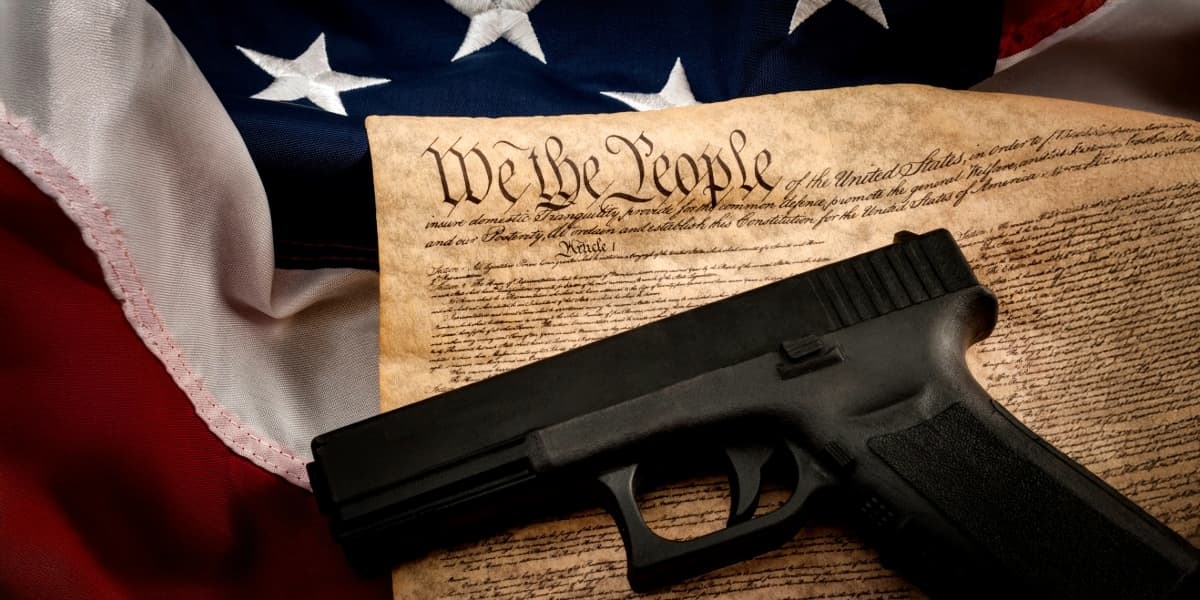Florida gun laws are complex. Whether you’re a firearm owner, a prospective buyer, or someone interested in knowing the legal landscape, you will want to understand firearm regulations in Florida that cover gun ownership, possession, and use. These gun laws in Florida cover purchasing and carrying guns, self-defense laws, as well as prohibited items. Having this knowledge can help you stay compliant and informed about Florida’s firearm regulations.
Constitutional Framework of Gun Laws in Florida
Florida gun laws come from the Florida Constitution, which states: “The right of the people to keep and bear arms in defense of themselves and of the lawful authority of the state shall not be infringed, except that the manner of bearing arms may be regulated by law.” This is similar to the Second Amendment of the U.S. Constitution that guarantees the right to bear arms while allowing the state to impose regulations. Gun laws in Florida incorporate these rights with public safety measures.
Purchasing Firearms in Florida
Under Florida gun laws, you must meet certain requirements.
Age Requirements: In Florida, you must be at least 21 to purchase a handgun and 18 to purchase a rifle or shotgun (Florida Statute 790.065.)
Background Checks: Every firearm purchase from licensed dealers requires a background check through the National Instant Criminal Background Check System (NICS). This check is administered by the Florida Department of Law Enforcement (FDLE). This background check verifies the buyer is not a prohibited person, such as a convicted felon, or domestic violence offender.
There Is a Waiting Period: Typically, there is a three-day waiting period for handgun purchases, excluding weekends and holidays. In the case that the buyer has a concealed carry permit or is trading in a firearm, this waiting period is waived. While rifles and shotguns have no waiting period, potential buyers must complete a 16-hour hunter safety course.
Prohibited Purchasers: Individuals who are under 21 for handguns, have certain misdemeanor convictions, or felons are not permitted to purchase firearms in Florida.
Private Sales: Sales between individuals are not subject to background checks or waiting periods in Florida, though federal law still prohibits selling to known prohibited persons.
Carrying Firearms Under Florida Gun Laws
Florida gun laws were updated with House Bill 543, signed into law on April 3, 2023. This allows permitless concealed carry. This means that eligible individuals 21 and older can carry concealed firearms without a permit. Open carry, however, remains illegal except in specific circumstances, such as while hunting or fishing (Florida Statute 790.25). Floridians may still obtain concealed carry licenses for reciprocity with other states or to bypass the handgun purchase waiting period. Applicants must complete a firearm training course, send in fingerprints, and pass a background check.
Gun laws in Florida do prohibit people from carrying firearms in certain locations, such as schools, government buildings, airports, and places that serve alcohol.
Florida has reciprocity when it comes to gun laws. The Sunshine State recognizes concealed carry permits from over 30 states and permits out-of-state visitors to carry under Florida’s rules, provided they comply with local laws.
Prohibited Firearms and Accessories
Florida gun laws also have regulations that prohibit certain accessories. For example, short-barreled rifles and shotguns require federal registration and are not regulated in Florida. Also in Florida, you may not have an automatic weapon unless obtained through a special licensing bureau, ATF (alcohol, tobacco, firearms, and explosives). Florida also prohibits any devices that enable semi-automatic weapons to function like automatic weapons.
Self-Defense and Stand Your Ground Laws
Florida’s self-defense laws are often called “Stand Your Ground” laws. These laws play an important role in Florida’s gun laws. Since 2005, Florida lets people use deadly force without retreating. This applies when protecting property like homes or vehicles. It also applies when protecting yourself.
This is only legal under specific conditions. The person must reasonably believe force prevents imminent death. They must also believe it prevents great bodily harm.
In 2017, Florida made “Stand Your Ground” laws stronger. The changes favor defendants when prosecution happens after self-defense. However, misusing firearms in self-defense can still bring criminal charges. These charges might include manslaughter or murder. The outcome depends on the specific circumstances of each case.
Red Flag Laws and Risk Protection Orders
Following the 2018 Parkland shooting, Florida enacted the Marjory Stoneman Douglas High School Public Safety Act. This allows law enforcement or family members to temporarily remove firearms from an individual who poses a danger to themselves or others.
Violating Florida Gun Laws and Penalties
Complying with Florida gun laws helps citizens avoid legal consequences. Violating gun laws in Florida may result in severe penalties. If someone carries a concealed firearm without meeting the eligibility criteria, the offense could be punishable up to 7 years in prison and carries a hefty $5,000 fine. Carrying firearms in restricted areas results in a felony charge.
Compliance with Florida Gun Laws
Know the Law: Familiarize yourself with Florida Statutes Chapter 790, and stay updated on any legislative changes.
Undergo Training: Even with Florida’s permit-less carry, taking a firearms training course will improve safe gun practices.
Secure Firearms: Storing firearms safety is essential and lawful. Florida gun laws require securing guns away from minor access and also storing them safely to prevent unauthorized access.
Consult an Attorney: If facing charges or seeking knowledge about Florida gun laws, consult a Florida attorney about your case and concerns.
This article was originally published on 7/5/2023 and has been updated on 7/9/2025 to provide the most accurate and relevant information.

